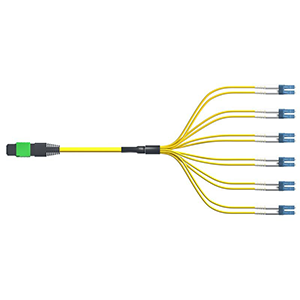Cisco Catalyst 2960-X series switches are widely used in enterprise networks. This article will explore whether this series of switches supports PoE. We will first describe the main features and common models of Catalyst 2960-X series switches. Next, we will define how PoE technology works and introduce its typical application scenarios in the network.
Then, we will analyze the support of Catalyst 2960-X series for PoE, pointing out that some models such as WS-C2960X-48FPS-L support PoE+, while some models such as WS-C2960X-48LPS-L do not support PoE. Finally, we will explain the advantages of PoE support, such as flexible deployment and centralized management, and analyze the limitations of not supporting PoE.
What is the Cisco Catalyst 2960-X Series Switch?
The Cisco Catalyst 2960-X Series Switch provides high performance and stability, supports Gigabit Ethernet and PoE functions, and is suitable for small and medium-sized enterprises and branch offices. It has enhanced security and manageability, supports multi-layer switching, and ensures efficient and secure operation of the network.
The Cisco Catalyst 2960-X Series Switch has the following main features:
Provides high-performance Layer 2 switching function:
- The Catalyst 2960-X series can provide efficient Layer 2 switching capabilities.
- Supports common Layer 2 network protocols such as VLAN and spanning tree protocol.
Supports a wide range of network management functions:
- Catalyst 2960-X series integrates a variety of network optimization and management functions, such as QoS, DHCP, SNMP, etc.
- Provides Web management interface and command line interface for centralized management.
Common Catalyst 2960-X series models include:
- WS-C2960X-24TS-L: 24 100M/1000M Ethernet ports
- WS-C2960X-48TS-L: 48 100M/1000M Ethernet ports
- WS-C2960X-48FPD-L: 48 100M/1000M Ethernet ports with PoE
The above models differ in terms of port quantity and PoE support. Users can choose the appropriate model according to their actual needs. In general, the Catalyst 2960-X series provides a feature-rich and high-performance Layer 2 switching solution for small and medium-sized enterprises and campus networks.
Basic principles of PoE technology
PoE (Power over Ethernet) technology transmits data and power simultaneously through network cables. It uses two pairs or four pairs of wires in the Ethernet standard to transmit current to power network devices such as IP cameras and wireless access points, simplifying wiring and reducing the need for additional power.
1. Working mechanism of PoE:
PoE (Power over Ethernet) technology can transmit data and power simultaneously through Ethernet cables to power terminal devices without the need for a separate power adapter. The specific working principle is as follows:
- PoE power supply devices (such as switches) provide DC power on the network cable.
- PoE powered devices (such as wireless access points, IP phones, etc.) obtain power through the network cable without the need for additional power supply.
2. Typical application scenarios of PoE in the network:
- Wireless access point (WAP): PoE powers WAP devices to simplify deployment.
- IP phone: PoE powers IP phone devices to avoid repeated wiring.
- Surveillance camera: PoE provides data and power for network cameras.
- Other network devices: such as network speakers, access control systems, etc.
In short, PoE technology transmits data and power simultaneously through network cables to power terminal devices, greatly simplifying network deployment and maintenance, so it is widely used in many network application scenarios.
Cisco Catalyst 2960-X Series Support for PoE
Cisco Catalyst 2960-X Series supports PoE+, providing up to 30W of power per port, suitable for devices such as IP phones and wireless access points. Different models provide different total power, with a maximum support of 740W, ensuring that the power needs of multiple devices are met.
1. Catalyst 2960-X Series Support for PoE:
Among the Cisco Catalyst 2960-X series switches, some models support PoE function, while some models do not.
- Models that support PoE, such as WS-C2960X-48FPS-L, provide PoE+ function.
- Models that do not support PoE, such as WS-C2960X-48LPS-L, only provide standard Ethernet data transmission functions.
2. Differences in PoE support specifications for different models:
- The PoE+ standard can provide a maximum power supply of 30W.
- The basic PoE standard can provide a maximum power supply of 15.4W.
Therefore, the Catalyst 2960-X model that supports PoE+ can provide higher power supply for connected terminal devices, which is suitable for devices that require more power, such as IP cameras.
In short, the Catalyst 2960-X series switches have differences in PoE support, and users need to choose the appropriate model according to actual deployment needs. Models that support PoE can simplify network deployment and improve flexibility.
The impact of PoE support on Catalyst 2960-X
PoE support enables Catalyst 2960-X switches to power devices such as IP phones and wireless access points through network cables, simplifying wiring and installation and reducing the need for additional power outlets. This improves the flexibility and management efficiency of network devices, but also requires attention to power allocation and total power limits.
1. Advantages of PoE support:
(1) No need to power terminals separately, more flexible deployment:
- Catalyst 2960-X switches that support PoE can power connected terminal devices such as IP phones, wireless APs, etc.
- This eliminates the need to install separate power adapters for these terminal devices, simplifying the network deployment process.
(2) Centralized management of power supply improves network reliability:
- PoE support allows the switch to centrally manage the power supply of terminal devices, facilitating monitoring and troubleshooting.
- This helps improve the overall reliability and availability of the network.
2. Limitations of not supporting PoE:
(1) Need to provide separate power supply for terminal devices:
- Catalyst 2960-X models that do not support PoE need to provide separate power supply for connected terminal devices.
- This increases deployment costs and complexity.
(2) Network deployment and management are relatively more complex:
- Need to separately wire power supply for terminal devices, increasing the workload of network deployment.
- At the same time, it also brings more challenges to network management and maintenance.
In summary, PoE support can greatly simplify the deployment of Catalyst 2960-X switches and improve network flexibility and reliability. Failure to support PoE will increase deployment complexity and limit network scalability. Therefore, PoE support is a key consideration for users to choose Catalyst 2960-X models.
Summary
PoE support is one of the important features of Catalyst 2960-X series switches. Our company has long been committed to the research and development and application of Cisco network solutions and has rich practical experience. We provide a full range of Catalyst 2960-X switch products, including models that support and do not support PoE, which can meet the needs of different network environments.
Our Catalyst 2960-X switch products use industry-leading technical solutions and have achieved excellent levels in performance, reliability and management functions. At the same time, our engineering team will provide you with professional demand analysis and solution design services to ensure that the deployed Catalyst 2960-X solution can meet your actual needs to the greatest extent. Contact us now to learn more.
Cisco Catalyst 2960-X FAQ
Yes, certain models within the Cisco Catalyst 2960-X Series switches support Power over Ethernet (PoE), enabling them to power devices like IP phones, access points, and cameras.
Models such as the 2960X-24PS-L, 2960X-48FPS-L, and 2960X-48LPS-L support PoE. It’s important to verify the specific model to ensure it supports PoE.
The Cisco Catalyst 2960-X Series supports both PoE (IEEE 802.3af) and PoE+ (IEEE 802.3at) standards, providing up to 15.4W and 30W per port, respectively.
Depending on the model and power budget, all ports on a PoE-capable 2960-X switch can provide PoE/PoE+ power simultaneously.
The PoE power budget varies by model. For example, the 2960X-48FPS-L has a PoE power budget of 740W, while the 2960X-24PS-L has a budget of 370W.
Yes, Cisco Catalyst 2960-X Series switches with PoE+ support can provide up to 30W per port, which is sufficient for high-power devices like PTZ cameras and wireless access points.
Yes, PoE settings, including power allocation and prioritization, can be configured using the switch’s command-line interface (CLI) or Cisco network management tools.
If the power demand exceeds the available PoE budget, the switch will prioritize power delivery based on configured settings, possibly disabling PoE on lower-priority ports.
No, not all Cisco Catalyst 2960-X Series switches are PoE-capable. Models without “P” or “FP” in their model numbers do not support PoE.
No, PoE support is hardware-dependent, and a non-PoE Cisco Catalyst 2960-X switch cannot be upgraded to support PoE. You would need to purchase a PoE-capable model.


